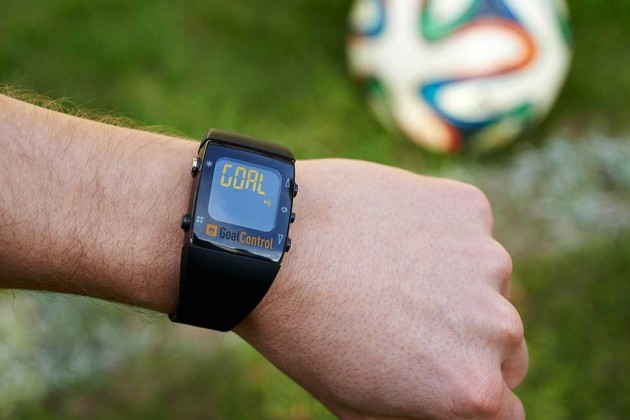World Cup 2014: will goal-line technology stop injustice in football?
13 June 2014 by Rebecca in Business and finance, Football Business
By (a currently very happy) Tsjalle van der Berg, author of Football business
Right at the beginning of most John Grisham books, a person appears who is confronted with circumstances which completely disrupt his happy life. Sometimes this is mainly bad luck, but often serious injustice is done. And then the person starts to fight the injustice, making the story a bestselling one. As an economist, I like that; high sales are good for the economy, and for employment too. Yes, injustice brings many good things – thanks to the hero who fights it of course.
Grisham is an open-minded man, but as a writer he refuses to have any discussions with the characters in his book. He simply does not listen to them. That’s good, because his heroes would tell him injustice should never be tolerated. This is how real heroes think. So if Grisham did what his heroes wanted, there wouldn’t be any injustice at all in his books – not even at the beginning. That would damage book sales. So Grisham is doing the right thing, in my view.
During the round of 16 match between England and Germany at the 2010 World Cup in South-Africa, the referee did not award a goal when Frank Lampard’s shot crossed the line. And so England lost. Yes, great injustice was done! In the media, many well-known players and coaches protested and pleaded for goal-line technology to assist the referee in such cases of doubt. Good. Our football heroes are examples for people all over the world, and they should make it clear that fairness is good.
 But players and coaches are no more than characters in the book called ‘Football’. The author of that book is FIFA. This author has, unlike John Grisham, recently listened to the characters in its book. And so the present World Cup has goal-line technology, which will make the game more just, but arguably less exciting to watch.
But players and coaches are no more than characters in the book called ‘Football’. The author of that book is FIFA. This author has, unlike John Grisham, recently listened to the characters in its book. And so the present World Cup has goal-line technology, which will make the game more just, but arguably less exciting to watch.
Of course, FIFA president Blatter can argue he is not only a writer, but also a character in the book called ‘Football’ – so he should set a good example for children too. And children will understand that the new technology is fair. But if this is Blatter’s argument, why is FIFA itself so corrupt? Why does it let big sponsors make money while the poor in Brazil suffer as a result? What kind of examples are these? If FIFA really wanted to fight injustice, video replay for referees should not have been its first priority.
Anyway, we have to face it: technology has become part of the game. But I still remember that match between England and West-Germany in 1970, at the World Cup in Mexico. The match was thrilling even before it started, as the Germans wanted revenge for that highly debatable English goal at the World Cup final at Wembley four years before. Hopefully, England will meet the Germans during the elimination stages of the current World Cup, in Brazil. If so, everyone should watch that one special game. It will be the first World Cup in which footballing heroes can expect real justice in undoing the injustices of the past. Now all England needs is for Lampard to score that same goal again!

